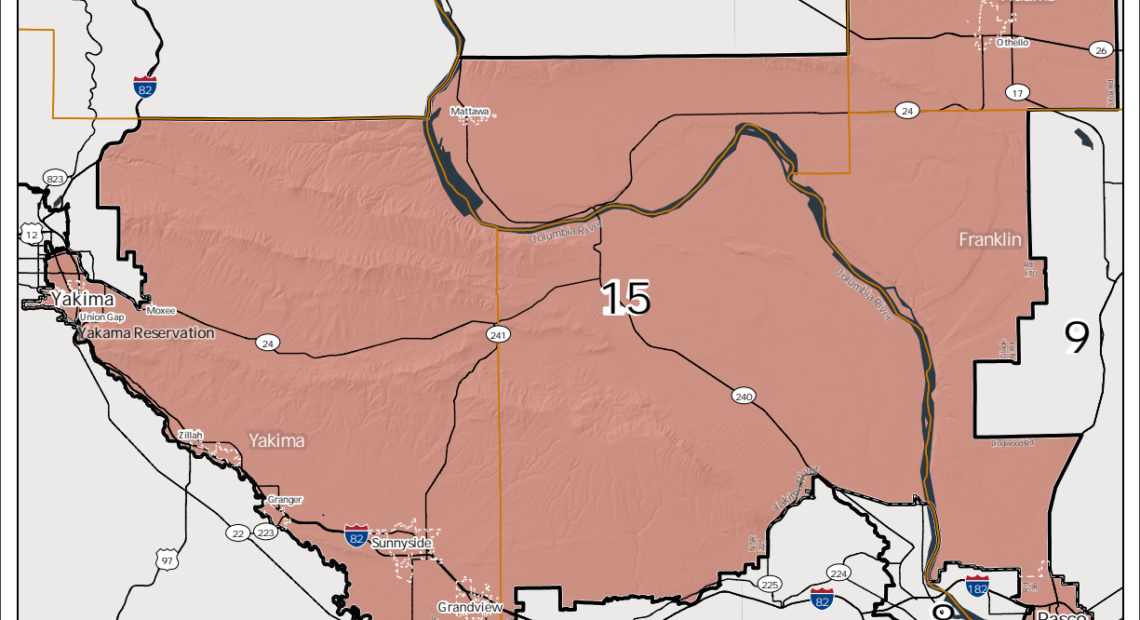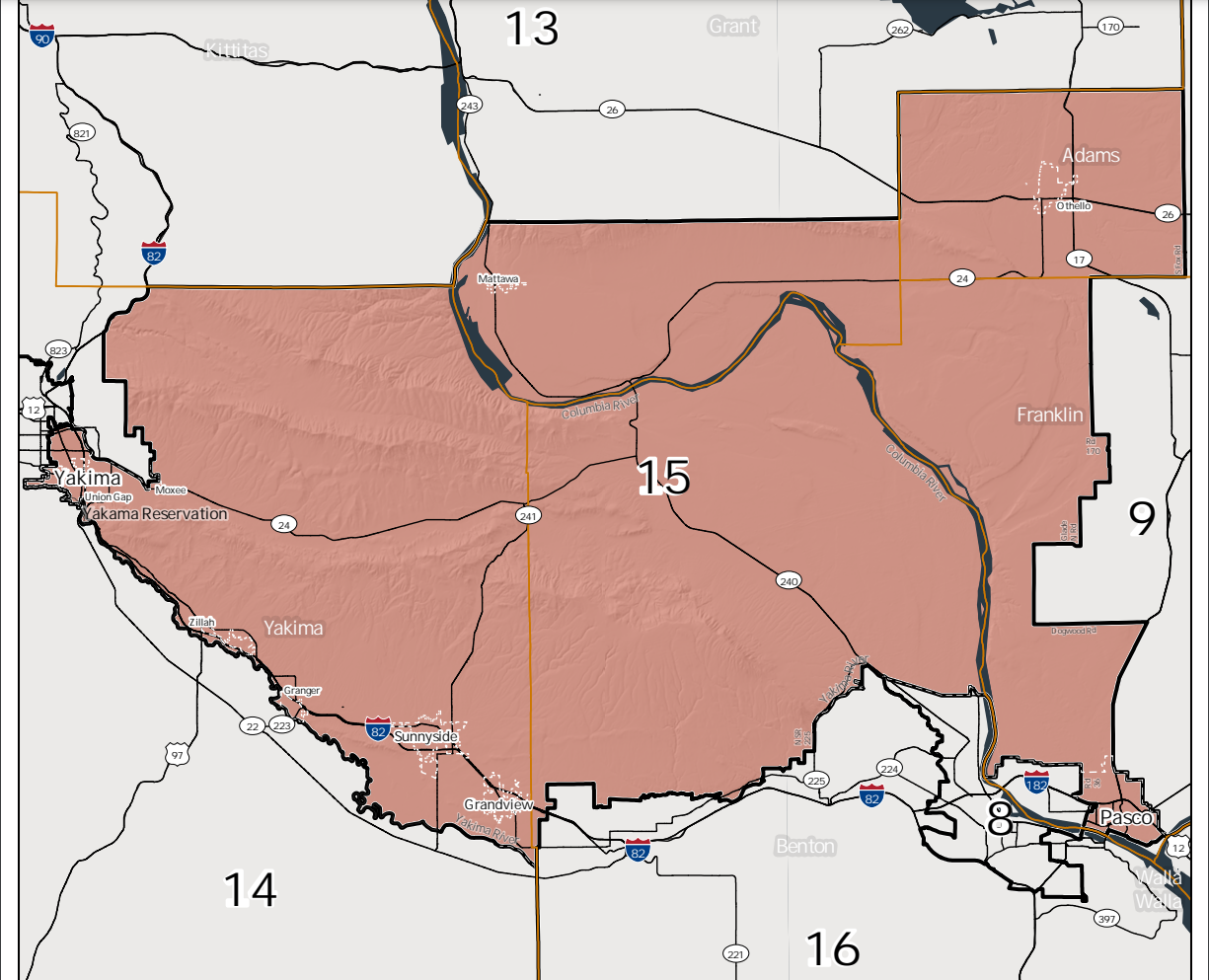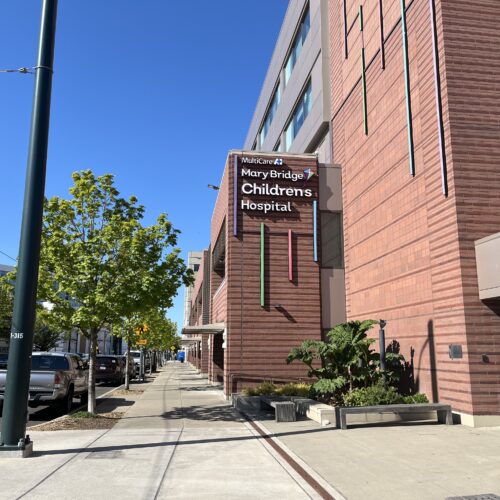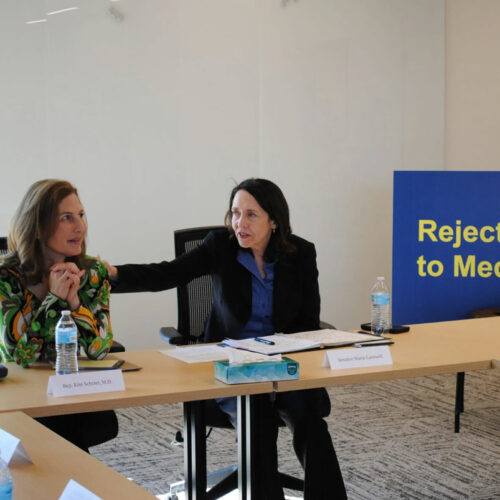
Central Washington Legislative District must be redrawn
Read
A Federal Judge has ruled that Washington State must adopt and enact new legislative maps for the Yakima Valley region by February 2024.
The decision came after Latino voters filed a lawsuit in January 2022 over the state redistricting plan, regarding Legislative District 15th boundaries. The suit claims the plan dilutes the Latino vote and violates the federal Voting Rights Act Section 2.
According to the decision, “the Court finds that the boundaries of LD 15, in combination with the social, economic, and historical conditions in the Yakima Valley region, results in an inequality in the electoral opportunities enjoyed by white and Latino voters in the area.”
Steve Hobbs is the Washington Secretary of State and defendant in the case.
“Judge Lasnik’s decision provides my office with a reasonable timeline to make sure the redrawn maps can be implemented for the 2024 Primary and General election,” said Hobbs in a statement. “I will gladly provide any resources that my office has to help with the redistricting process the court has ordered.”
Campaign Legal Center (CLC), MALDEF (Mexican American Legal Defense and Educational Fund), the UCLA Voting Rights Project and attorney Edwardo Morfin filed the lawsuit on behalf of individual Latino voters in the Yakima Valley area.
Ernest Herrera is the MALDEF Western Regional counsel.
“Today’s decision is a first momentous step in addressing that injustice and protecting Latinos’ right to representation in Washington state government,” noted Herrera in a press release.
Also, Sonni Waknin, program manager and Voting Rights Counsel at the UCLA Voting Rights Project, stated that “this was the first statewide Federal Voting Rights Act lawsuit against Washington and the Court’s ruling affirms that voters must have real electoral opportunities, not just bare, ineffective districts.”
The court decision directs that the parties involved in the lawsuit shall file a joint status report on January 2024, “notifying the Court whether a reconvened Commission was able to redraw and transmit to the Legislature a revised map by that date.”
In case the Commission is not able to redraw the maps, the parties shall present jointly of separated proposed maps for the Court’s consideration before January 15, 2024.
In his statement Hobbs said “the steps to reconvene a Redistricting Commission that “has ceased to exist” are found in RCW 44.05.120.”
According to that Revised Code of Washington (RCW), “if a commission has ceased to exist, the legislature may, upon an affirmative vote in each house of two-thirds of the members elected or appointed thereto, adopt legislation reconvening the commission for the purpose of modifying the redistricting plan.”
As Washington’s chief elections officer, Secy. Hobbs makes “available to the Redistricting Commission any resources, including census data and maps, he can reasonably provide,” said his statement. “When the commission concludes its business, the Secretary of State has a custodial role to preserve its records.”
The new redistricting plan “will be transmitted to the Secretary of State on or before March 25, 2024” to be in effect for the 2024 election, according to the court document.
Explaining how Washington State is ensuring Hispanic or Latino/e/x and other underserved communities voting rights around the state, Hobbs noted that his offices has “expanded outreach to registered and potential voters in underserved communities through creating an outreach team and expanding voter education efforts.”
















